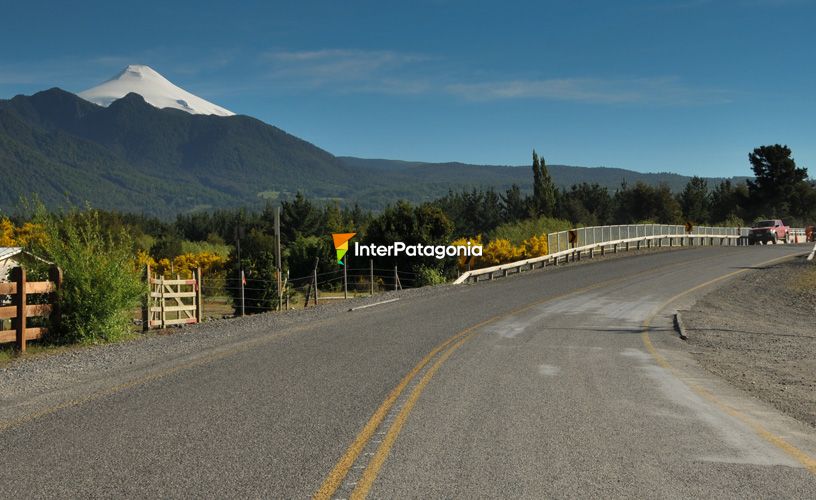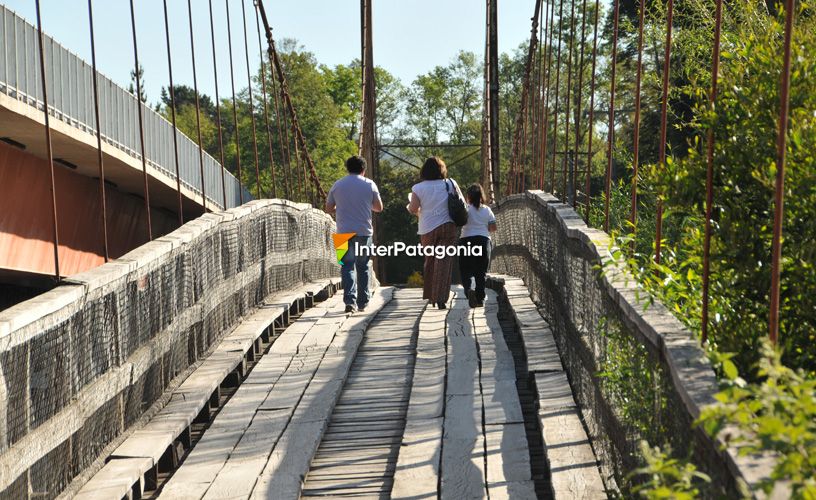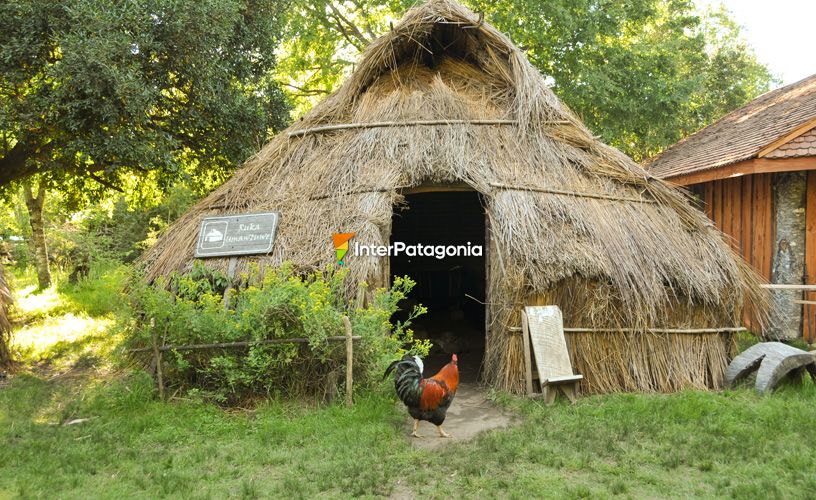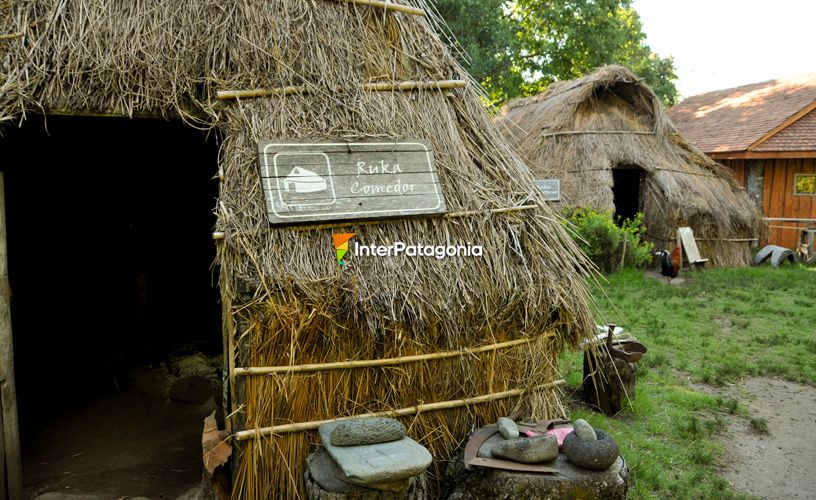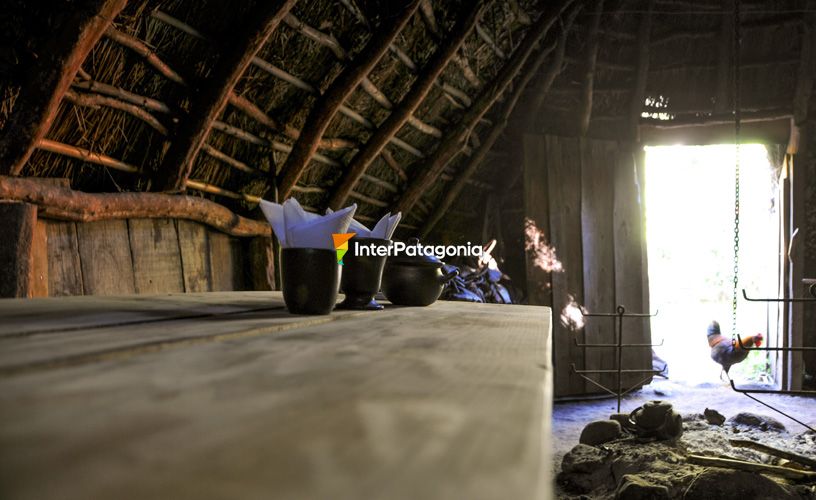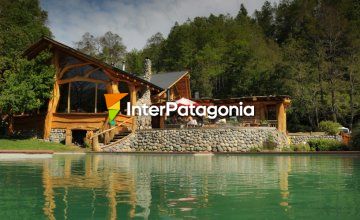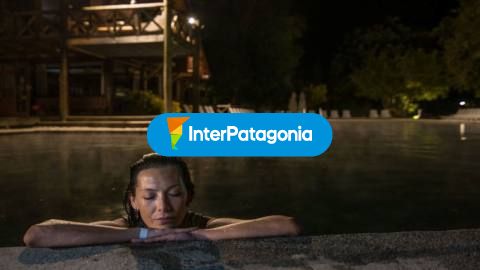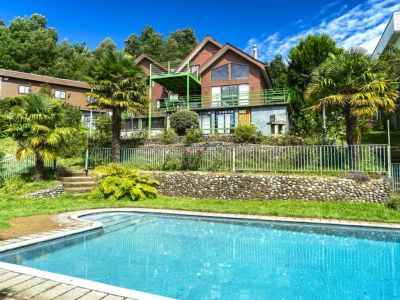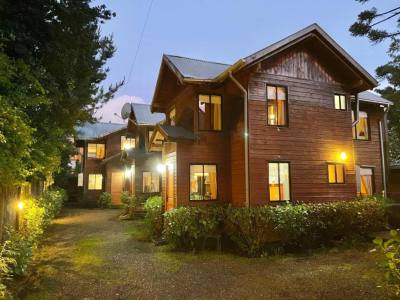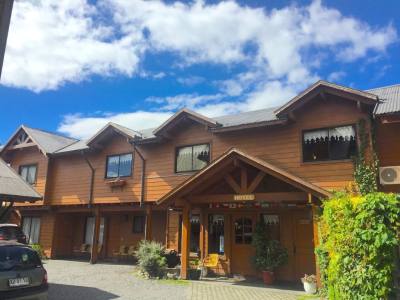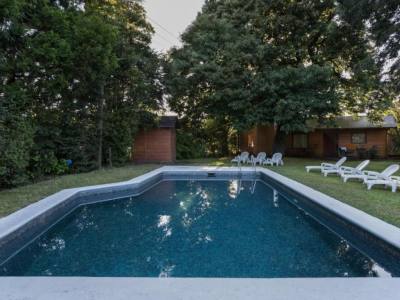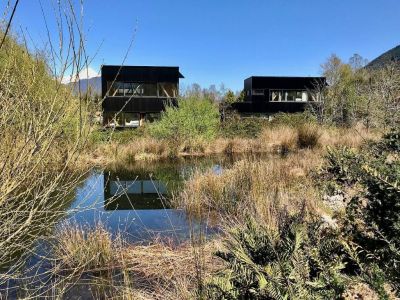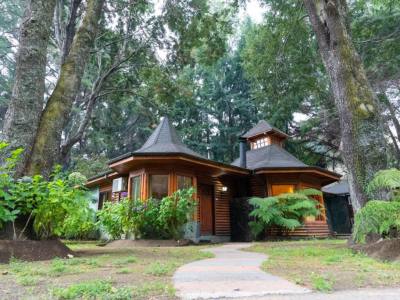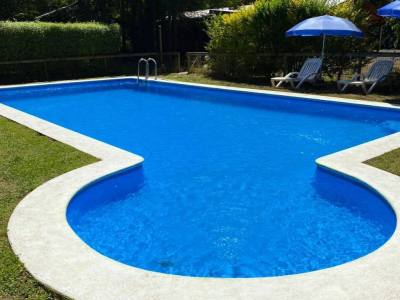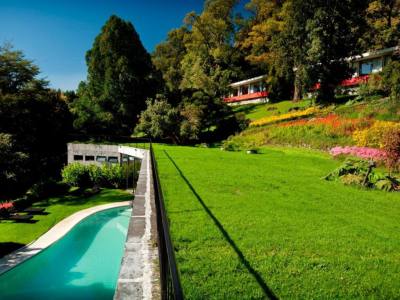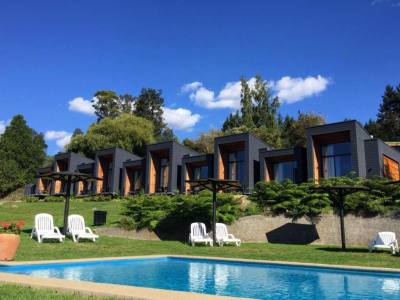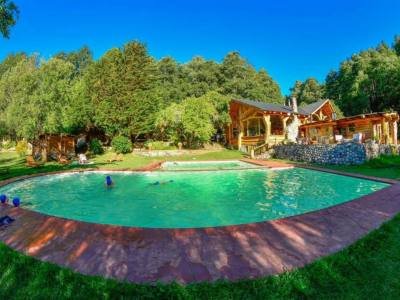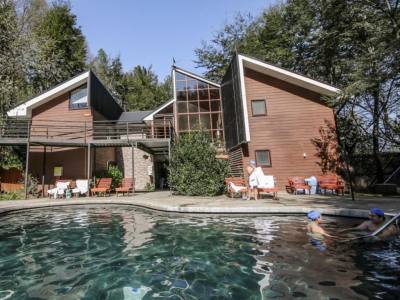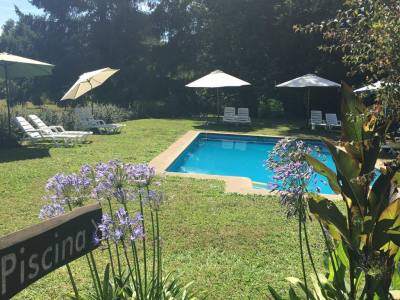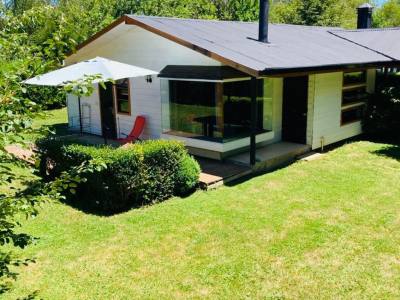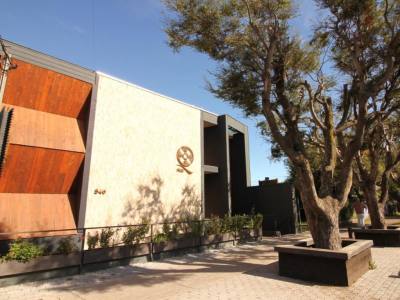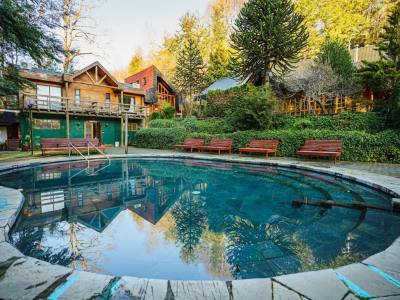Queule is the name of the footbridge located on the road to Lake Caburgua. The surrounding territory, dwelled by a group of Mapuche families, is also known as Quelhue. They are both reached by car or bike and they represent a tour around the smaller but very attractive settlements in the area. In former times, the Trancura River would be crossed by an old one-way wooden bridge that still remains but is not used. A higher bridge made of concrete has been raised next to it. It is higher, stronger and more modern. Both of them give evidence of an increase in traffic and population. Below them, the same river, sown with rocks and pleasant murmur, flows. As we crossed the newer bridge, we could see the Lanín, Quetrupillán and Villarrica Volcanoes quite clearly. The traditional market known as Kui Kui is put up at this spot every summer. It offers handicrafts and typical Mapuche dishes for sale as the music of this culture is heard all around.
Quelhue, Mapuche Hamlet
We took a gravel road leading to Río Plata and got to the house owned by the Esparza H-Colipi family, from the Manuel Huaiquivil community. Its members opened their gates to us and showed us their lifestyle, customs and traditions. Besides enjoying their cuisine, celebrations and entertainment, visitors may stay at their rucas, built with local wood (hualle or roble pellín, maqui, or willow) and covered with straw. The original houses used to provide shelter for the entire family group, who shared one space. The newer units are used only as bedrooms. They are cool and offer comfortable beds and mattresses. The meals and the gathering at the fire pit are special moments during which ancestral habits, religious worship by the rehue -a sacred tree log- and the deep respect paid to nature are revealed. Maybe foreigners are the most frequent users of rucas, as they feel passionate about this ancient culture and hiking in the surroundings. The game known as palín is highly appreciated by the younger ones and it resembles present-day hockey. Learning more about visions that differ from those prevailing in big cities may be the main component of these outings that may be enjoyed either by car or by bike during one day or staying overnight at this location.
Mónica Pons
Eduardo Epifanio
